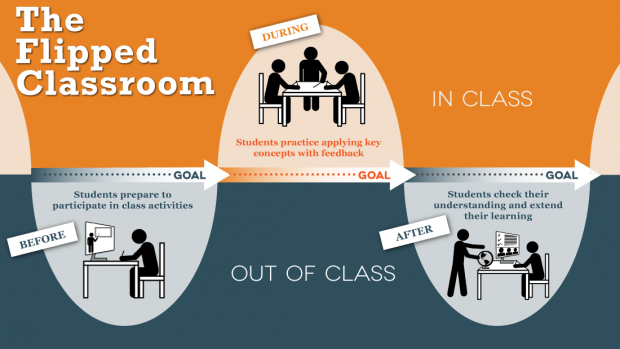|
According to the Teaching with Technology survey conducted by Campus Technology (2016), the majority of faculty in higher education are either flipping their classroom or plan to flip their classroom. The flipped classroom is a pedagogical model where traditional lecture and homework are reversed. Many flipped classrooms include short video lectures from the instructor in order to cover content knowledge before students come to class to discuss and practice the content through projects and exercises. The flipped classroom focuses on active, student-centered learning and has shown an increase in student engagement inside and outside the classroom. Flipping the classroom allows instructors to offer more interactive and applied practice to help students reach higher level learning. At its core, flipped learning really is a form of blended learning because it incorporates both face-to-face and online elements. Flipped learning can be used to modify learning to best support students' needs and learning interests. Flipping the classroom will be a change for both instructors and students. Instructors will move away from the Sage on the Stage model toward a Guide on the Side model (though carefully considering what that means and not leaving students to fend for themselves, but instead use their sage-ness to help guide student learning). Students will have more choice and responsibility for their learning. The collaborative and cooperative nature of flipped learning can be uncomfortable at first for instructors and students alike, but supporting students in their learning by offering more hands-on practice is worth it when we see students go beyond basic understanding and instead show mastery of content. Resources to ExploreYour comment will be posted after it is approved.
Leave a Reply. |
Archives
April 2017
Categories
All
|

 RSS Feed
RSS Feed
